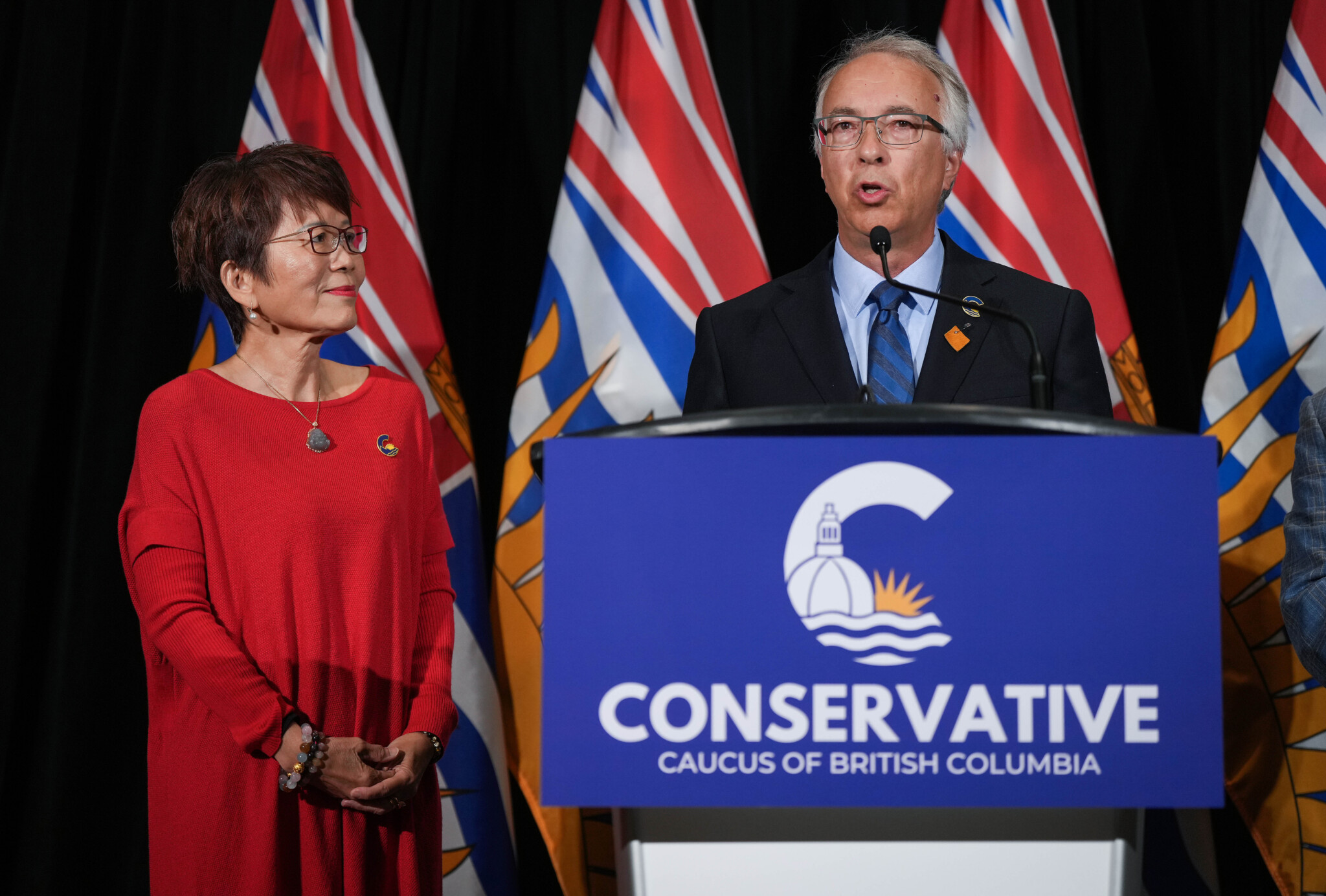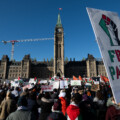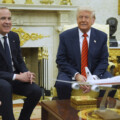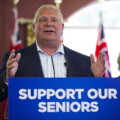The sunken ship of the BC United Party has at last sent out its mayday call, already on the rocks of the shore. The Conservative Party of British Columbia might salvage some aboard and leave the rest at sea.
A staggering shift in British Columbian politics over the last year was formally recognized Wednesday. BC United, the renamed BC Liberal Party, is shuttering shop—temporarily at least, permanently if the plan works—so the Right can unite and form a formidable threat to the BC NDP on the eve of an election campaign and an October 19 vote.
BC United leader Kevin Falcon, only two years ago, booted John Rustad from the party for departing from policy on climate change. And how the climate has since changed: Rustad joined the fringe Conservatives, became leader, and stewarded a startling ascent from about 4 to now about 40 percent in the polls, in a statistical tie with David Eby’s NDP.
Combined, the two right-of-centre parties’ support was larger than that of the government. While not all of the BC United following will follow Rustad, it is fair to say today that it is now his election to lose.
Falcon’s return to politics in 2022 has been nothing but a tire fire. His determination to boot hard-Right conservatives from the party inadvertently fueled Rustad’s rise and his own demise. His decision to rename the party went over like New Coke. He couldn’t put sufficient cleavage between his centrist policies and those of the ruling party. He was carrying baggage from the BC Liberals. Donors were voting in advance with their wallets. Polls suggested people just didn’t get him.
Rustad was perceived as the red-meat change agent, Falcon was milquetoast comparably, and public opinion steadily showed that. As he folded the tent Wednesday, the man who only two years ago was expected to be the next premier was running a faltering party in single digits. It’s a long way for a party that has ruled B.C. for two-thirds of this century under Gordon Campbell and Christy Clark.
By last weekend, Falcon had heard enough from enough to realize he was putting personal pride over the political principles of defeating the dreaded NDP. Aides started a two-party conversation, which then led to a two-leader discussion Monday into early Tuesday. It is possible Falcon has wasted valuable currency in waiting so long to succumb to the many entreaties to make the tent-folding seismic in its effect. Much of the apparatus of his party has already come over to Rustad’s realm. A few MLAs fled, too, so it’s harder to see the clear-cut benefits of unification this late in the game. As we say in journalism, time will tell.









